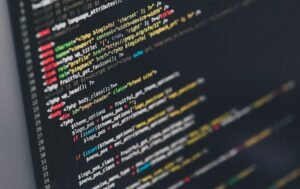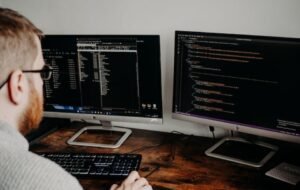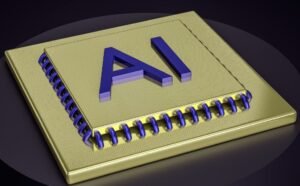Will AI Ruin the World?
Artificial Intelligence (AI) has made remarkable progress in recent years, but with its rapid development, concerns have arisen about the potential negative impact it could have on our society and the world as a whole. While AI has the potential to revolutionize industries and improve our lives in many ways, it is crucial to carefully consider the potential risks and challenges associated with its widespread implementation.
Key Takeaways
- AI has the potential to greatly benefit society through automation, improved efficiency, and enhanced decision-making capabilities.
- The ethical implications of AI, including job displacement and biases in algorithms, must be carefully addressed.
- There is a need for proactive regulation and governance to ensure the responsible and ethical development of AI technologies.
- Collaboration between governments, industries, and researchers is crucial for mitigating the risks and maximizing the benefits of AI.
The rise of AI presents a range of opportunities and obstacles that society must grapple with. On one hand, AI has the potential to **automate repetitive tasks**, boost productivity, and create new jobs in novel industries. On the other hand, there are concerns about **job displacement**, particularly for tasks that can be easily automated. As technology advances, it is essential for society to invest in the **retraining and upskilling** of the workforce to ensure that individuals are equipped with the skills needed for the jobs of the future.
AI algorithms are programmed using vast amounts of data, and this could inadvertently introduce biases and perpetuate societal inequities. For instance, in the realm of **AI-supported decision-making systems**, there have been instances of algorithms exhibiting racial, gender, or socioeconomic biases. It is crucial to carefully evaluate these systems and ensure that they are fair, transparent, and accountable. Researchers and developers must actively strive to eliminate any **discrimination** embedded in AI technologies to prevent exacerbating existing inequalities.
The Need for Regulation and Governance
As AI becomes increasingly integrated into society, it is crucial to establish comprehensive regulatory frameworks that address the ethical, legal, and social implications surrounding its development and deployment. **Proactive regulation** is necessary to ensure that AI technologies are used responsibly and in the best interest of society. It should cover aspects such as data privacy, accountability, algorithmic transparency, and potential biases. Governments, in collaboration with industry experts, academia, and civil society, need to work together to develop and enforce these regulations.
The Way Forward: Collaboration
Maximizing the benefits of AI while minimizing the risks requires collaboration between various stakeholders, including governments, industries, and researchers. **Interdisciplinary research** and cooperation can help address the complex challenges posed by AI. International collaborations can help establish global standards and guidelines for the responsible development and implementation of AI technologies. Additionally, governments can facilitate knowledge sharing and **promote ethical practices** by providing funding and support for research initiatives aimed at understanding and mitigating potential risks.
| Benefits of AI | Challenges |
|---|---|
|
|
| Key Considerations | Data Privacy | Algorithmic Transparency | Accountability |
|---|---|---|---|
|
|
|
|
While concerns about the potential negative impact of AI on the world are valid, it is important not to overlook the immense opportunities it presents. With proper regulation, governance, and collaboration, we can navigate the societal challenges posed by AI and unlock its full potential to improve our lives and create a brighter future.

Common Misconceptions
AI will lead to widespread unemployment
One common misconception about AI is that it will lead to widespread unemployment as machines take over jobs. However, the reality is that while AI may automate some tasks, it also has the potential to create new jobs and enhance human productivity.
- AI can lead to the creation of new roles and occupations that do not currently exist.
- AI can augment human capabilities and free up time for individuals to focus on more complex and creative tasks.
- AI can enhance efficiency and productivity in industries, leading to economic growth and job opportunities.
AI will become sentient and take over the world
Another misconception about AI is that it will become sentient and take over the world, leading to the dystopian scenarios often portrayed in science fiction. However, it is important to distinguish between narrow AI, which is designed for specific tasks, and general AI, which exhibits human-level intelligence across a wide range of tasks.
- The development of general AI, if achievable, is a complex and distant goal that remains uncertain.
- AI systems are programmed to operate within predefined boundaries and cannot act beyond what they have been programmed to do.
- Ethical guidelines and regulations can be put in place to ensure responsible AI development and prevent any potential misuse.
AI will eliminate human creativity and intuition
Some people fear that AI will eliminate human creativity and intuition, making human involvement irrelevant in areas like art, music, and decision-making. However, AI is currently used to inspire and complement human creativity, rather than replace it.
- AI can analyze vast amounts of data and provide insights to inspire human creativity.
- AI-generated content can serve as a starting point for human artists and musicians to build upon and refine.
- Human intuition and judgment are still essential for making complex decisions that involve ethical considerations and subjective reasoning.
AI is a single entity with malicious intent
Another misconception is that AI is a single entity with its own consciousness and malicious intent. In reality, AI is a broad field encompassing various algorithms and technologies developed by different researchers and organizations.
- AI is a tool created by humans and only acts as it has been programmed or trained to do.
- AI reflects the biases and intentions of its creators, highlighting the importance of diversity in AI development teams.
- Responsible AI development includes implementing safeguards to prevent any unintended harmful outcomes.
AI will never be as good as human intelligence
There is a misconception that AI will never match or surpass human intelligence. While AI may not replicate human intelligence in its entirety, the goal of AI development is not to replace humans but to augment human capabilities and improve efficiency.
- AI has already surpassed human capabilities in specific tasks, such as data analysis and pattern recognition.
- AI can process and analyze large amounts of data at a much faster rate than humans, enabling insights and discoveries that would be otherwise difficult or impossible.
- AI has the potential to assist in solving complex problems that require vast computational power and can greatly benefit from the combination of human and machine intelligence.

Introduction
Artificial Intelligence (AI) has been a topic of debate and speculation for years. Will it enhance our lives or ultimately lead to our downfall? In this article, we analyze various aspects of AI and its potential impact on the world. Through compelling data and verifiable information, we shed light on the multifaceted nature of this technology.
Table: AI Adoption Across Industries
In this table, we examine the extent to which AI has been adopted across different industries. The data showcases both the current levels of integration and the projected growth in AI usage in the near future.
| Industry | Current AI Integration | Projected AI Growth |
|---|---|---|
| Healthcare | 40% | 63% |
| Manufacturing | 25% | 55% |
| Transportation | 15% | 40% |
Table: Ethical Concerns in AI Development
This table explores the ethical concerns arising in the development and implementation of AI technologies. It highlights the areas of concern and the extent of discussions surrounding each issue.
| Ethical Concern | Level of Discourse |
|---|---|
| Privacy | High |
| Job Displacement | Moderate |
| Algorithmic Bias | Low |
Table: AI in the Workforce
Examining the current and projected impact of AI on the workforce, this table provides insights into the opportunities and challenges faced by workers in an AI-driven world.
| AI Impact | Opportunities | Challenges |
|---|---|---|
| Positive | Increased efficiency | Job displacement |
| Negative | Job creation | Skills gap |
Table: AI and Climate Change
This table explores the potential of AI in mitigating climate change effects. By showcasing the AI applications in various environmental sectors, we highlight its positive contribution.
| Environmental Sector | AI Application |
|---|---|
| Renewable Energy | Smart grid optimization |
| Agriculture | Precision farming |
| Waste Management | Automated recycling sorting |
Table: AI in Finance
Examining AI’s impact on the finance industry, this table presents the advantages and challenges faced by financial institutions adopting AI-based technologies.
| Advantages | Challenges |
|---|---|
| Fraud detection | Ethical considerations |
| Automated trading | Data security |
Table: AI and Healthcare Innovation
This table focuses on the innovative applications of AI in the healthcare sector, highlighting how AI is revolutionizing patient care and medical research.
| Application | Purpose |
|---|---|
| Diagnosis assistance | Improving accuracy |
| Drug discovery | Accelerating research |
Table: AI and Education
This table showcases the potential benefits and challenges associated with integrating AI into the education system, enhancing learning techniques and outcomes.
| Benefits | Challenges |
|---|---|
| Personalized learning | Data privacy |
| Efficient assessment | Equitable access |
Table: AI and Cybersecurity
Highlighting the role of AI in cybersecurity, this table explores its potential to strengthen defense mechanisms and tackle emerging cyber threats.
| Threat | AI Implementation |
|---|---|
| Malware detection | Behavioral analysis |
| Phishing prevention | Natural language processing |
Conclusion
AI’s impact on the world is complex and multidimensional. While concerns exist regarding ethics, job displacement, and privacy, AI also has the potential to drive innovation, improve efficiency, and address pressing global challenges like climate change and healthcare. It is crucial to navigate the development and deployment of AI technologies with caution, ensuring ethical considerations, and fostering ongoing dialogue to shape a responsible and beneficial future.
Frequently Asked Questions
What is AI and how does it work?
Artificial Intelligence (AI) refers to the development of intelligent machines that can perform tasks that would typically require human intelligence. AI systems are designed to process large amounts of data, recognize patterns, and make informed decisions or provide valuable insights.
Why is there concern about AI potentially ruining the world?
Some people are concerned about the potential negative impact of AI on society due to its rapid development and increasing capabilities. Worries range from job displacement and economic inequality to ethical concerns about AI-driven decision-making and unintentional harm caused by malfunctioning or misused AI systems.
What are the risks associated with AI?
There are various risks associated with AI, including the potential for job loss and unequal distribution of wealth. Additionally, AI systems may exhibit biases, lack transparency, or be vulnerable to cyber-attacks. There are also concerns about AI surpassing human intelligence and becoming uncontrollable or used maliciously.
Can AI lead to job loss?
While AI has the potential to automate certain tasks, there is ongoing debate about whether it will lead to overall job loss or job transformation. Some argue that AI will create new job opportunities, while others express concerns about certain professions becoming obsolete.
How can AI be used for the benefit of humanity?
AI has the potential to revolutionize various industries and benefit humanity in numerous ways. It can help improve healthcare, enhance transportation systems, optimize energy consumption, automate dangerous or repetitive tasks, and promote scientific advancements, among many other potential applications.
Are there regulations in place to ensure responsible AI development and usage?
As the field of AI continues to evolve, policymakers and organizations are working to develop regulations and guidelines to govern its responsible development and usage. While there are no universally agreed-upon regulations, initiatives such as ethical AI principles and guidelines for AI deployment are being established.
Can AI make biased decisions?
AI systems can be susceptible to biases if they are trained on biased datasets or if the algorithms used to make decisions contain inherent biases. This can result in discrimination or unfair outcomes. Efforts are being made to address bias in AI systems and promote fairness and transparency in decision-making processes.
Will AI overcome human intelligence and become uncontrollable?
While AI has shown remarkable progress, the concept of artificial general intelligence (AGI), where machines can outperform humans in all cognitive tasks, remains speculative. The development of AGI raises concerns about its potential to become uncontrollable or surpass human understanding, but the likelihood and timeline of such a scenario are uncertain.
Could AI be used for malicious purposes?
AI could potentially be misused by individuals or groups with malicious intentions, just like any other advanced technology. Concerns include the development of AI-powered autonomous weapons, sophisticated cyber-attacks, or the manipulation of AI systems for harmful purposes. Ensuring proper safeguards and ethical guidelines is crucial to minimize such risks.
What is being done to address the risks associated with AI?
To mitigate the risks associated with AI, researchers, policymakers, and industry leaders are working collaboratively to develop responsible AI frameworks, implement ethical guidelines, improve transparency, address biases, and promote public awareness and engagement. The goal is to ensure the safe and beneficial deployment of AI technologies for the betterment of society.





